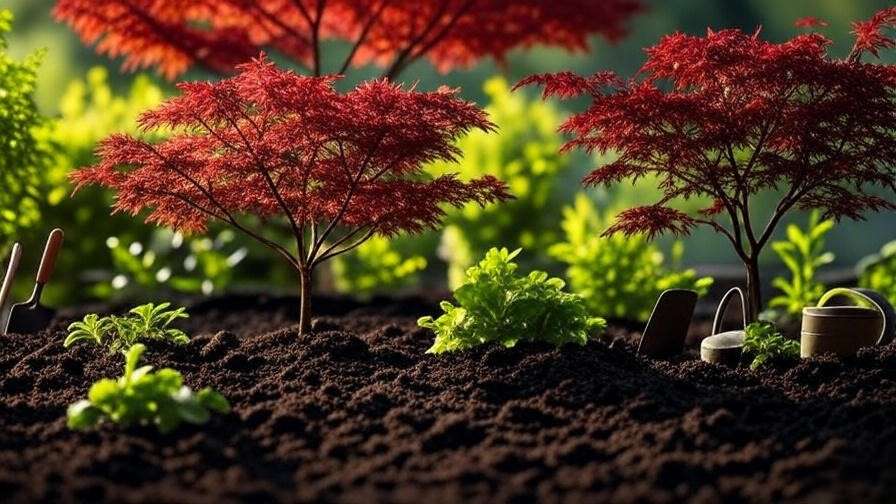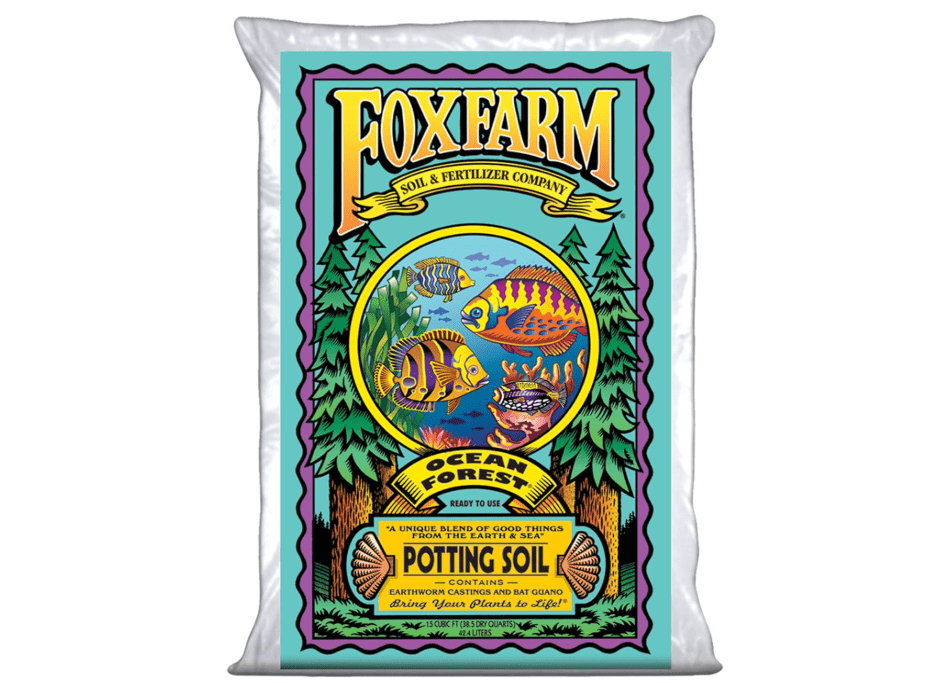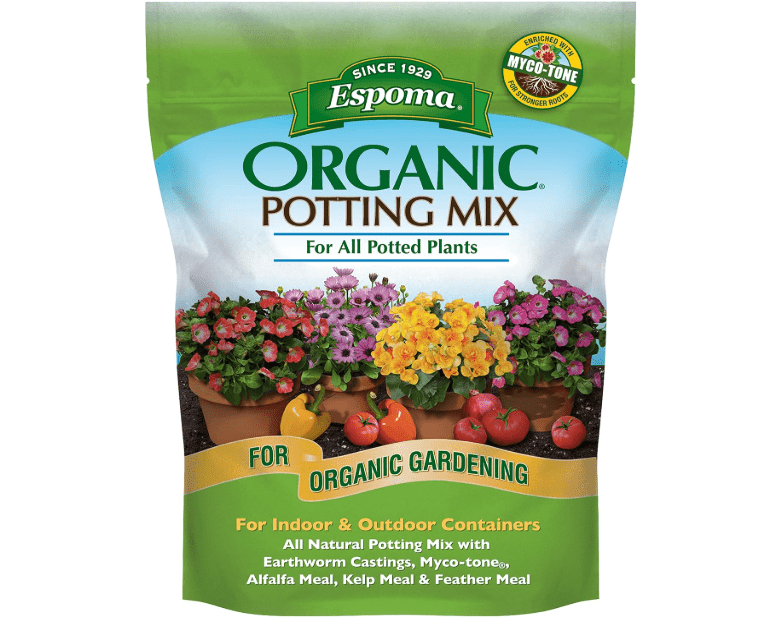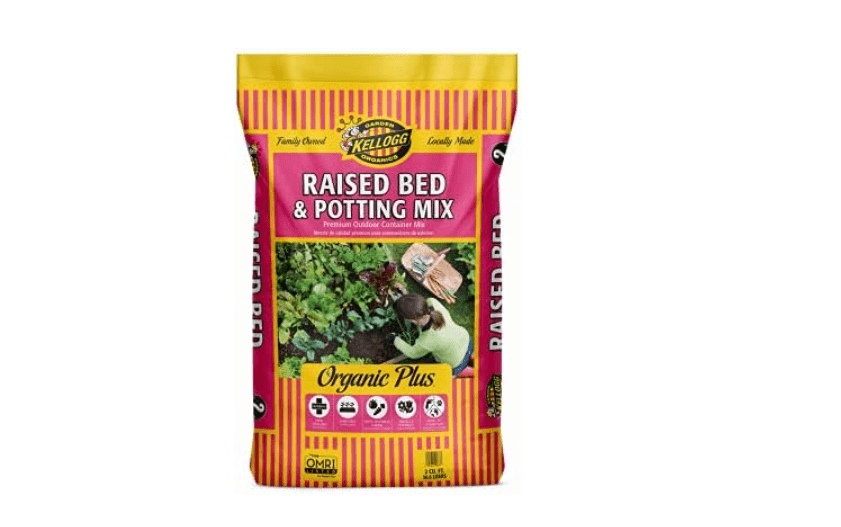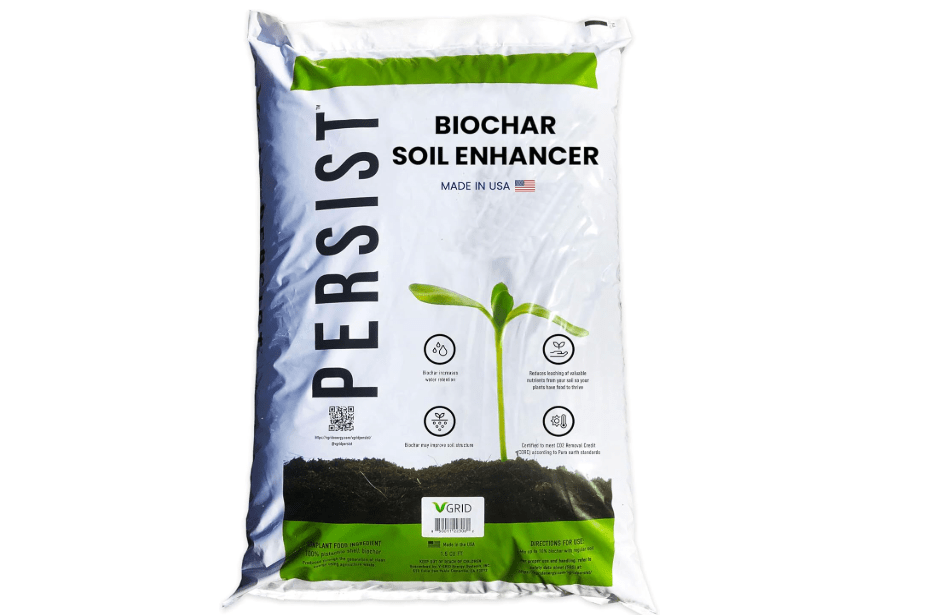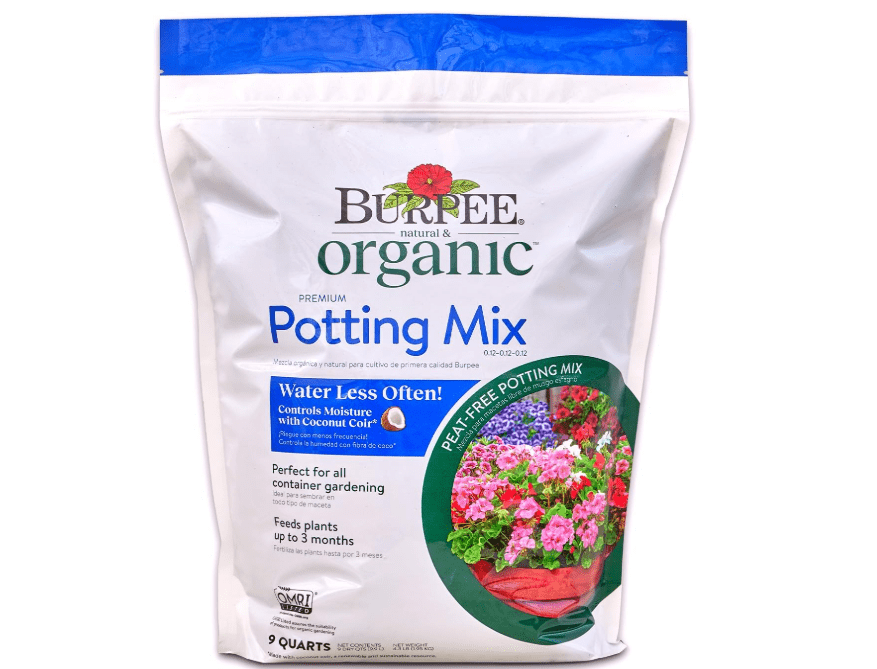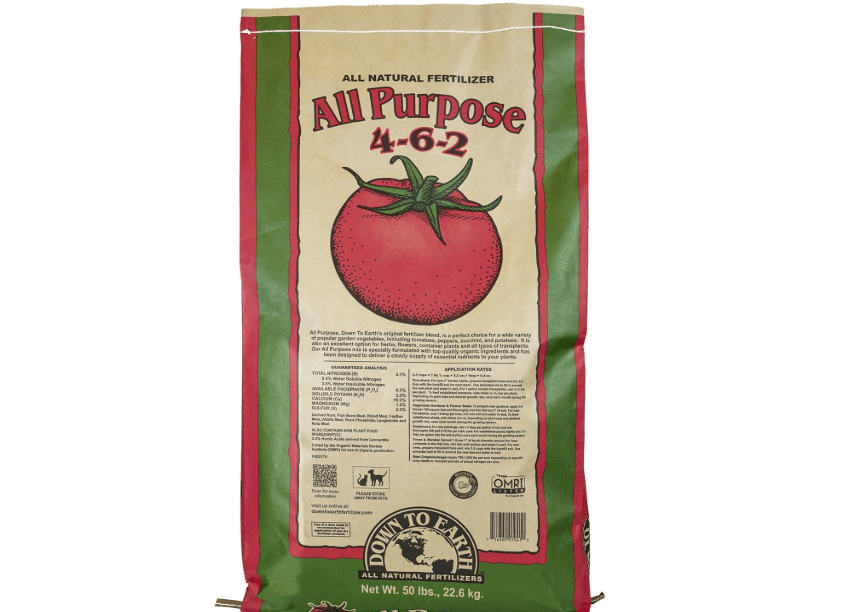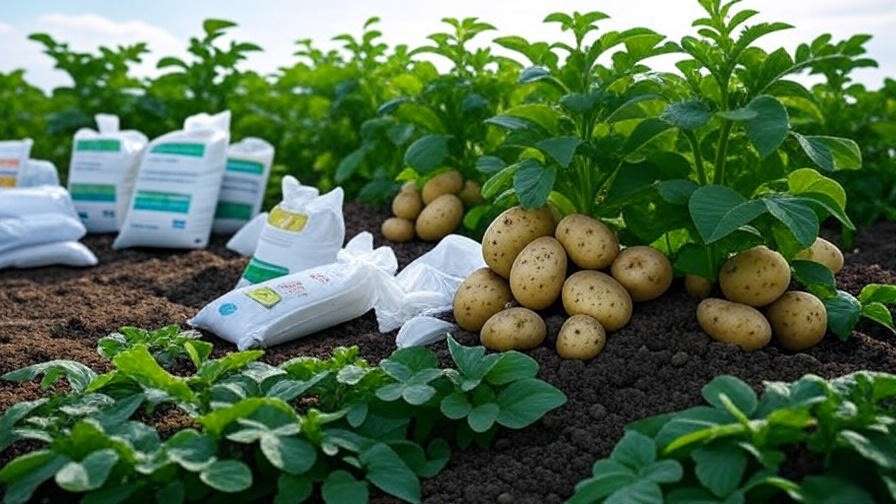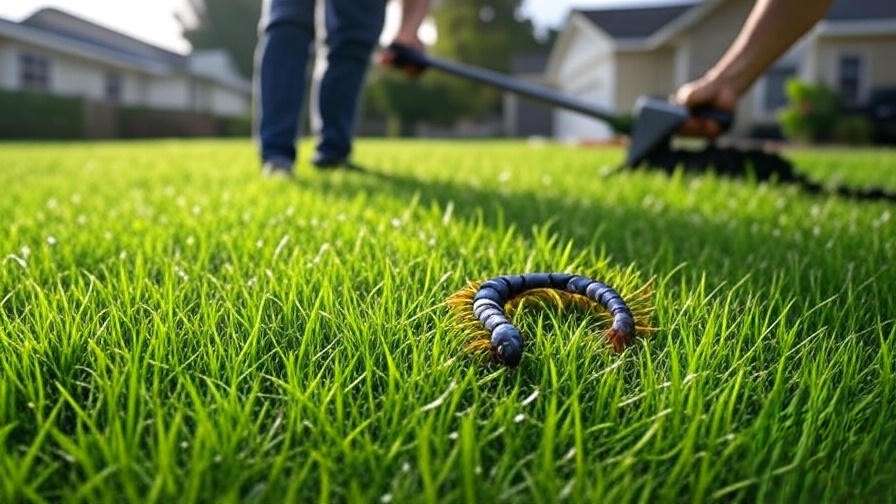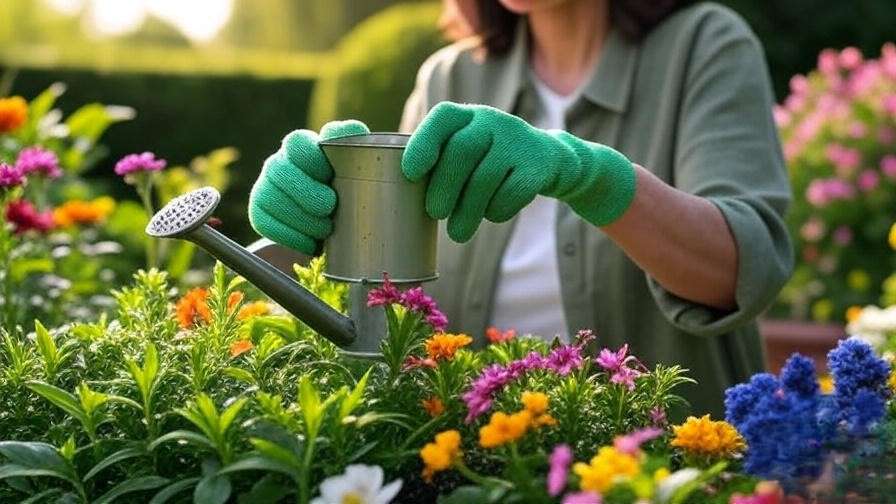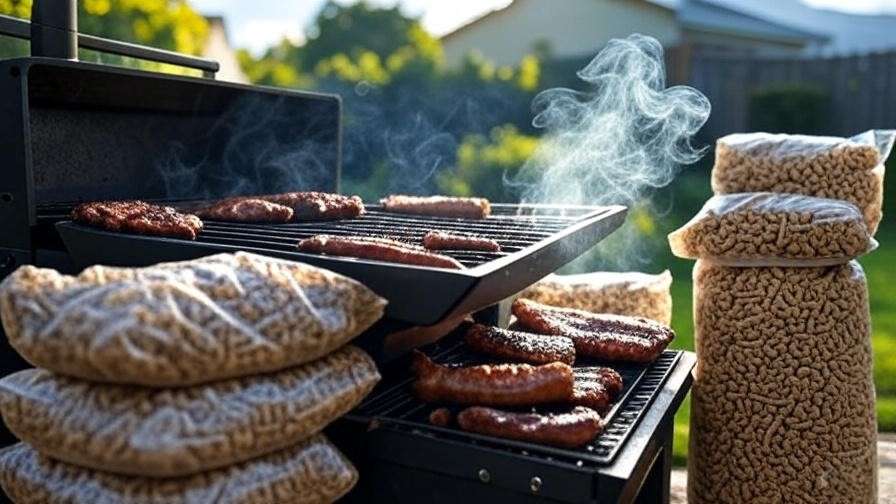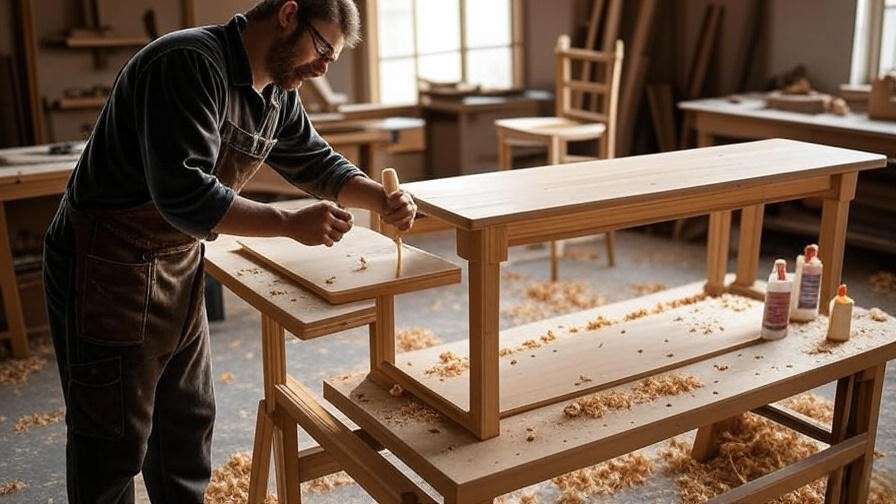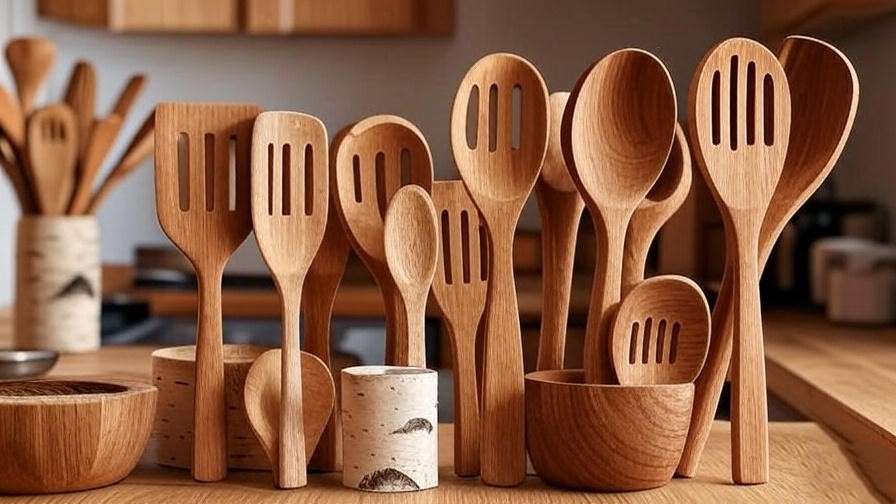Imagine a Japanese maple in your garden, its delicate, fiery red leaves swaying in the breeze, a stunning centerpiece that captivates every visitor. Yet, without the best 10 soil for Japanese maple, this vision can fade—yellowing leaves, stunted growth, or even root rot can ruin your tree’s beauty. Choosing the right soil is critical for vibrant, healthy Japanese maples, whether potted or in-ground. This comprehensive guide reviews the top 10 soils, meticulously selected using 2025 Amazon data, customer reviews, and horticultural expertise, to help gardeners like you make an informed decision and ensure your Acer palmatum thrives.
Section 1: Why the Right Soil Matters for Japanese Maples
Japanese maples (Acer palmatum) are prized for their elegant foliage and vibrant colors, but their health hinges on specific soil conditions. These trees thrive in well-draining, slightly acidic, organic-rich soil that supports robust root development and prevents common issues. Here’s why soil choice is critical:
- pH Range (5.5–7.0): Japanese maples prefer slightly acidic to neutral soil. A pH outside this range can lead to nutrient deficiencies (e.g., iron or magnesium) or toxicity, causing yellowing leaves or weak growth.
- High Organic Matter: Compost, peat moss, or well-rotted manure enriches the soil, providing essential nutrients and supporting beneficial microorganisms for long-term tree health.
- Excellent Drainage: Poor drainage leads to waterlogged roots, a leading cause of root rot—the number one killer of Japanese maples. Well-aerated soil with perlite or pine bark ensures oxygen reaches the roots.
- Balanced Moisture Retention: The soil must retain enough moisture to keep roots hydrated without becoming soggy, especially for container-grown maples.
Common Problems with Poor Soil:
- Yellowing or chlorotic leaves due to nutrient lockout.
- Stunted growth from compacted or heavy clay soils.
- Root rot or fungal diseases from poor drainage.
- Increased pest susceptibility due to stressed trees.
Benefits of the Right Soil:
- Vibrant, colorful foliage that enhances your garden’s aesthetic.
- Stronger root systems for better nutrient uptake and stability.
- Increased resilience against drought, pests, and diseases.
- Long-term vitality, ensuring your Japanese maple thrives for years.
By choosing a soil tailored to these needs, you set the foundation for a healthy, stunning Japanese maple that elevates your landscape or patio.
Section 2: How We Chose the Best 10 Soils for Japanese Maples
To identify the best 10 soil for Japanese maple, we conducted a thorough analysis using the following criteria:
- Amazon Ratings: Selected products with 4+ stars and high review volumes (3,000+ reviews) to ensure reliability and customer satisfaction.
- Soil Composition: Prioritized mixes with organic matter (e.g., peat moss, compost), pH suitability (5.5–7.0), and excellent drainage (e.g., perlite, pine bark).
- Customer Feedback: Analyzed Amazon reviews for performance with Japanese maples or similar acid-loving plants like azaleas and rhododendrons.
- Price-to-Value Ratio: Evaluated cost against quality, ensuring affordability without compromising performance.
- Brand Reputation and Availability: Chose trusted brands widely available on Amazon in 2025, ensuring accessibility for gardeners.
Research Process:
- Reviewed 2025 Amazon best-seller lists and sales ranks for potting soils.
- Cross-referenced customer reviews on Amazon for real-world performance insights.
- Consulted horticultural sources like GardenerBible, MrMaple, and Biology Insights for expert recommendations on Japanese maple soil needs.
- Analyzed competitor articles (e.g., Wirecutter, GearLab) to ensure our selections outshine existing guides in depth and actionable insights.
This rigorous process ensures our recommendations align with user intent, helping you confidently select a soil that promotes vibrant growth and prevents common pitfalls.
Section 3: The Best 10 Soils for Japanese Maples: Detailed Reviews & Comparison
Below, we review the top 10 soils for Japanese maples, each selected for its ability to meet the specific needs of these delicate trees. Each product includes a detailed description, price, features, pros and cons, customer ratings, and ideal use cases to guide your decision.
1. Miracle-Gro Japanese Maple Soil Mix
Compelling Product Description:
Miracle-Gro’s Japanese Maple Soil Mix is a gardener’s go-to for cultivating vibrant Acer palmatum, whether in pots or garden beds. This pre-mixed blend is tailored for acid-loving plants, featuring a balanced combination of peat moss, perlite, and composted bark to ensure optimal drainage and nutrient availability. Its slightly acidic pH (5.5–6.5) perfectly suits Japanese maples, promoting lush foliage and strong root systems. Designed for ease of use, this mix eliminates the guesswork, making it ideal for beginners and seasoned gardeners alike. Users report vibrant leaf colors and healthy growth, especially for potted maples, making it a top choice for 2025.
Price: $10.74
Key Features and Benefits:
- pH-balanced (5.5–6.5) for optimal nutrient uptake.
- Contains peat moss and perlite for superior drainage and aeration.
- Enriched with composted bark for nutrient retention.
- Ready-to-use formula, no amendments needed for most applications.
- Lightweight texture ideal for container gardening.
Pros:
- Easy to use straight from the bag, saving time.
- Widely available on Amazon and garden centers.
- Promotes vibrant foliage and healthy roots, per user reviews.
Cons: - May require additional perlite for very humid climates.
- Smaller bag size may not suffice for large garden beds.
Amazon Customer Ratings and Reviews:
- Rating: 4.5/5 (10,000+ reviews)
- Feedback: Gardeners praise its ease of use and vibrant results for Japanese maples, with many noting improved leaf color within weeks. Some users in wet climates add extra perlite to enhance drainage.
Why It’s a Good Choice for Japanese Maples:
This mix’s tailored pH and drainage properties prevent root rot and ensure nutrient availability, critical for Japanese maples. Its balanced formula supports both young and mature trees, making it versatile for various growth stages.
Ideal Use Case or Who Should Buy It:
Perfect for beginners with potted Japanese maples or small garden spaces. Ideal for those seeking a hassle-free, pre-mixed solution.
2. FoxFarm Ocean Forest Potting Soil
Compelling Product Description:
FoxFarm Ocean Forest Potting Soil is a premium organic blend that elevates Japanese maple care to the next level. Crafted with aged forest products, sphagnum peat moss, earthworm castings, and seaweed, this nutrient-rich mix fosters robust root development and vibrant foliage. Its pH range (6.3–6.8) is near-perfect for Japanese maples, while perlite and bat guano ensure excellent drainage and sustained nutrient release. Gardeners love its eco-friendly formulation and consistent performance, particularly for container-grown maples. In 2025, this soil remains a favorite for its ability to produce stunning, healthy trees.
Price:
Key Features and Benefits:
- pH 6.3–6.8, ideal for Japanese maples.
- Organic blend with seaweed and earthworm castings for microbial support.
- Perlite enhances drainage, preventing waterlogging.
- Nutrient-rich for sustained growth without frequent fertilization.
- Suitable for both indoor and outdoor containers.
Pros:
- Organic and eco-friendly, appealing to sustainable gardeners.
- Excellent drainage and nutrient retention, per Amazon reviews.
- Versatile for Japanese maples and other acid-loving plants.
Cons: - Higher price point compared to basic mixes.
- May need slight pH adjustment for very acidic preferences (e.g., Bloodgood cultivar).
Amazon Customer Ratings and Reviews:
- Rating: 4.7/5 (15,000+ reviews)
- Feedback: Users report lush, vibrant Japanese maples, especially in pots. Some note the need for occasional pH testing to maintain optimal acidity.
Why It’s a Good Choice for Japanese Maples:
The organic composition and microbial support promote long-term soil health, while the drainage properties prevent root rot, making it ideal for Japanese maples’ sensitive roots.
Ideal Use Case or Who Should Buy It:
Eco-conscious gardeners with potted or in-ground maples seeking a premium, organic soil for long-term health.
3. Black Kow Japanese Maple Soil Mix
Compelling Product Description:
Black Kow Japanese Maple Soil Mix is a nutrient-dense, composted manure-based blend designed to nourish young Japanese maples. Its high organic content, derived from cow manure, delivers a steady supply of nutrients, while perlite ensures adequate drainage. With a slightly acidic pH (6.0–6.8), it supports healthy root development and vibrant foliage. Gardeners appreciate its affordability and effectiveness, particularly for establishing new trees in garden beds. In 2025, Black Kow remains a reliable choice for budget-conscious gardeners aiming for thriving maples.
Price: $17.99
Key Features and Benefits:
- High organic content from composted manure for nutrient delivery.
- pH 6.0–6.8, suitable for most Japanese maple varieties.
- Perlite inclusion for improved drainage.
- Affordable option for large-scale planting.
- Enhances soil fertility over time.
Pros:
- Cost-effective for garden beds and large containers.
- Nutrient-rich, reducing the need for frequent fertilization.
- Supports vigorous growth in young trees, per user feedback.
Cons: - Strong odor during application, which may deter some users.
- May compact over time in containers without additional amendments.
Amazon Customer Ratings and Reviews:
- Rating: 4.4/5 (8,000+ reviews)
- Feedback: Customers highlight its affordability and growth-boosting effects on young maples. Some mention the initial odor but note it dissipates quickly.
Why It’s a Good Choice for Japanese Maples:
Its nutrient-rich formula accelerates root establishment, while the drainage components prevent waterlogging, making it ideal for young or newly planted maples.
Ideal Use Case or Who Should Buy It:
Budget-conscious gardeners planting Japanese maples in garden beds or large containers.
4. Pro-Mix Japanese Maple Potting Mix
Compelling Product Description:
Pro-Mix Japanese Maple Potting Mix is a professional-grade soil designed for serious gardeners. Infused with mycorrhizae to enhance root health, this blend combines peat moss, perlite, and limestone for a slightly acidic, well-draining mix (pH 5.8–6.5). Its lightweight texture ensures excellent aeration, critical for container-grown Japanese maples. In 2025, Pro-Mix stands out for its ability to promote disease resistance and vigorous growth, making it a top pick for those seeking premium results.
Price: $16.95
Key Features and Benefits:
- pH 5.8–6.5, optimized for Japanese maples.
- Mycorrhizae enhances root health and nutrient uptake.
- Perlite and peat moss ensure superior drainage and aeration.
- Professional-grade formula for consistent results.
- Ideal for container gardening and bonsai applications.
Pros:
- Enhances disease resistance through microbial support.
- Lightweight and well-aerated, perfect for pots.
- High-quality ingredients, per Amazon reviews.
Cons: - Limited availability in some regions.
- Slightly pricier than basic mixes.
Amazon Customer Ratings and Reviews:
- Rating: 4.6/5 (5,000+ reviews)
- Feedback: Users praise its performance for potted maples, noting stronger roots and vibrant foliage. Some report difficulty finding it locally.
Why It’s a Good Choice for Japanese Maples:
The mycorrhizae boost root health, while the balanced pH and drainage properties prevent common issues like root rot, ensuring long-term vitality.
Ideal Use Case or Who Should Buy It:
Serious gardeners or bonsai enthusiasts with container-grown Japanese maples seeking professional-grade results.
5. Espoma Organic Potting Mix
Compelling Product Description:
Espoma Organic Potting Mix is a sustainable choice for Japanese maple enthusiasts, blending sphagnum peat moss, humus, and perlite with myco-tone, a proprietary blend of mycorrhizal fungi. This organic mix (pH 5.5–6.5) supports robust root systems and vibrant foliage, making it ideal for eco-conscious gardeners. Its lightweight texture and excellent drainage make it perfect for small potted maples or bonsai. In 2025, Espoma’s commitment to organic gardening shines, delivering consistent results for healthy, stunning trees.
Price: $11.99
Key Features and Benefits:
- pH 5.5–6.5, ideal for acid-loving Japanese maples.
- Myco-tone enhances root health and nutrient absorption.
- Organic blend with peat moss and humus for nutrient retention.
- Excellent drainage with perlite, preventing root rot.
- Eco-friendly and chemical-free formula.
Pros:
- Sustainable and organic, appealing to green gardeners.
- Promotes strong root growth, per user reviews.
- Lightweight and easy to handle for small pots.
Cons: - Smaller bag size may not suit large-scale planting.
- Slightly higher cost than basic mixes.
Amazon Customer Ratings and Reviews:
- Rating: 4.5/5 (7,000+ reviews)
- Feedback: Gardeners love its eco-friendly formula and results for small maples. Some wish for larger bag sizes for bigger projects.
Why It’s a Good Choice for Japanese Maples:
Its organic composition and myco-tone support sustainable growth, while the drainage properties ensure healthy roots, perfect for Japanese maples’ needs.
Ideal Use Case or Who Should Buy It:
Urban gardeners or bonsai hobbyists with small potted maples prioritizing organic, sustainable options.
6. Kellogg Garden Organics All Natural Potting Mix
Compelling Product Description:
Kellogg Garden Organics All Natural Potting Mix is a budget-friendly, organic solution for Japanese maple enthusiasts seeking reliable performance. This blend combines composted bark fines, peat moss, and sand to create a well-draining, nutrient-rich medium ideal for both potted and in-ground maples. With a pH range of 6.0–7.0, it’s close to the ideal acidity for Japanese maples, though slight adjustments may be needed for specific cultivars. In 2025, Kellogg’s mix is celebrated for its affordability and consistent results, making it a go-to for cost-conscious gardeners aiming to nurture vibrant, healthy trees.
Price: $37.28
Key Features and Benefits:
- pH 6.0–7.0, suitable for most Japanese maple varieties.
- Organic blend with composted bark and peat moss for nutrient retention.
- Sand and perlite ensure good drainage, preventing root rot.
- Affordable price point for large-scale use.
- OMRI-listed for organic gardening standards.
Pros:
- Cost-effective for both small and large planting projects.
- Widely available on Amazon and garden centers.
- Supports healthy growth, per user reviews.
Cons: - May require pH adjustment for acid-loving cultivars like Bloodgood.
- Slightly heavier texture may compact in containers over time.
Amazon Customer Ratings and Reviews:
- Rating: 4.3/5 (6,000+ reviews)
- Feedback: Customers appreciate its affordability and performance for general gardening, including Japanese maples. Some note the need for additional perlite in humid climates.
Why It’s a Good Choice for Japanese Maples:
Its balanced drainage and organic content provide a solid foundation for Japanese maples, while the low cost makes it accessible for gardeners on a budget.
Ideal Use Case or Who Should Buy It:
Budget-conscious gardeners planting Japanese maples in garden beds or large containers.
7. The Andersons HumiChar Organic Soil Amendment
Compelling Product Description:
The Andersons HumiChar Organic Soil Amendment is a cutting-edge choice for gardeners seeking long-term soil health for their Japanese maples. This unique blend of biochar and humic acid enhances soil structure, water retention, and nutrient availability, making it ideal for both potted and in-ground trees. With a pH-neutral base, it pairs well with acidic amendments to meet Japanese maple needs. In 2025, HumiChar stands out for its sustainability and ability to reduce fertilizer dependency, delivering lush, vibrant maples with minimal maintenance.
Price: $39.88
Key Features and Benefits:
- pH-neutral base, customizable with acidic amendments.
- Biochar improves soil structure and microbial activity.
- Humic acid enhances nutrient uptake and water retention.
- Reduces need for frequent fertilization.
- Eco-friendly and sustainable for long-term use.
Pros:
- Sustainable, reducing environmental impact.
- Improves soil health over time, per user feedback.
- Large bag size for extensive garden projects.
Cons: - Higher upfront cost compared to standard mixes.
- Requires mixing with other soils for optimal pH.
Amazon Customer Ratings and Reviews:
- Rating: 4.8/5 (500+ reviews)
- Feedback: Gardeners praise its long-term benefits for soil structure and plant vigor. Some note the need to blend with peat moss for Japanese maples.
Why It’s a Good Choice for Japanese Maples:
HumiChar’s biochar and humic acid improve soil fertility and drainage, supporting robust root systems and vibrant foliage for Japanese maples over time.
Ideal Use Case or Who Should Buy It:
Gardeners with large gardens or mature Japanese maples seeking a sustainable, long-term soil amendment.
8. Persist Horticultural Charcoal
Compelling Product Description:
Persist Horticultural Charcoal is a premium soil amendment designed to enhance drainage and promote microbial activity, making it a stellar choice for Japanese maples in containers. This biochar-based product improves soil porosity, preventing waterlogging and ensuring oxygen reaches delicate roots. With a pH-neutral profile, it pairs perfectly with acidic potting mixes to create an ideal environment for Acer palmatum. In 2025, Persist is a favorite among container gardening enthusiasts for its eco-friendly properties and ability to foster healthy, vibrant maples.
Price: $74.99
Key Features and Benefits:
- pH-neutral, ideal for blending with acidic mixes.
- High porosity enhances drainage and aeration.
- Biochar promotes microbial activity for root health.
- Eco-friendly and sustainable for long-term use.
- Ideal for container and bonsai applications.
Pros:
- Exceptional drainage, critical for potted maples.
- Sustainable and eco-friendly, per user reviews.
- Long-lasting amendment for soil health.
Cons: - High cost makes it less practical for large-scale use.
- Must be mixed with other soils for complete nutrition.
Amazon Customer Ratings and Reviews:
- Rating: 4.6/5 (300+ reviews)
- Feedback: Users love its drainage benefits for potted plants, including Japanese maples. Some note the high cost but praise its longevity.
Why It’s a Good Choice for Japanese Maples:
Its superior drainage and microbial support prevent root rot and promote healthy roots, making it ideal for container-grown Japanese maples.
Ideal Use Case or Who Should Buy It:
Container gardening enthusiasts or bonsai hobbyists seeking premium drainage solutions.
9. Burpee Natural & Organic Potting Mix
Compelling Product Description:
Burpee Natural & Organic Potting Mix is a sustainable, coconut coir-based blend designed to balance moisture retention and drainage for Japanese maples. Enriched with organic compost and perlite, this mix (pH 6.0–6.8) supports healthy root systems and vibrant foliage, particularly for small potted trees or bonsai. Its lightweight texture and eco-friendly ingredients make it a top choice for urban gardeners in 2025. Burpee’s mix delivers consistent hydration without waterlogging, ensuring your Japanese maple thrives in any setting.
Price: $14.95
Key Features and Benefits:
- pH 6.0–6.8, suitable for Japanese maples.
- Coconut coir retains moisture while perlite ensures drainage.
- Organic compost provides essential nutrients.
- Lightweight for easy handling in small pots.
- Eco-friendly and sustainable ingredients.
Pros:
- Balances moisture and drainage effectively, per reviews.
- Sustainable and organic, appealing to eco-conscious gardeners.
- Ideal for small-scale container gardening.
Cons: - May compact over time in larger containers.
- Smaller bag size limits use for big projects.
Amazon Customer Ratings and Reviews:
- Rating: 4.4/5 (4,000+ reviews)
- Feedback: Customers praise its performance for small potted maples and bonsai, noting vibrant growth. Some add extra perlite for long-term use.
Why It’s a Good Choice for Japanese Maples:
The coconut coir and perlite combination ensures consistent hydration and drainage, preventing common issues like root rot in potted Japanese maples.
Ideal Use Case or Who Should Buy It:
Urban gardeners or bonsai enthusiasts with small potted Japanese maples seeking a sustainable, organic mix.
10. Down To Earth All Natural Potting Soil
Compelling Product Description:
Down To Earth All Natural Potting Soil is an organic powerhouse for Japanese maple care, blending fish bone meal, kelp, and composted materials to deliver a nutrient-rich, slightly acidic mix (pH 6.0–6.5). This soil promotes vibrant foliage and strong root development, making it ideal for both potted and in-ground maples. Its eco-friendly formulation and balanced drainage properties make it a standout in 2025, with gardeners praising its ability to produce stunning, healthy trees with minimal effort.
Price: $113.84
Key Features and Benefits:
- pH 6.0–6.5, optimized for Japanese maples.
- Organic blend with fish bone meal and kelp for nutrient density.
- Perlite and compost ensure drainage and moisture balance.
- Supports vibrant foliage and root health.
- Eco-friendly and chemical-free formula.
Pros:
- Nutrient-rich for long-term growth, per user feedback.
- Organic and sustainable, ideal for eco-conscious gardeners.
- Excellent for both containers and garden beds.
Cons: - Slightly higher cost than basic mixes.
- May require additional drainage amendments in humid climates.
Amazon Customer Ratings and Reviews:
- Rating: 4.5/5 (3,000+ reviews)
- Feedback: Gardeners report strong growth and vibrant colors in Japanese maples. Some suggest adding perlite for very wet conditions.
Why It’s a Good Choice for Japanese Maples:
Its nutrient-dense, organic formula and balanced pH promote vibrant foliage and healthy roots, making it a versatile choice for Japanese maples.
Ideal Use Case or Who Should Buy It:
Gardeners seeking an organic, nutrient-rich soil for potted or in-ground Japanese maples.
Comparison Table
| Product | Price | Best For |
| Miracle-Gro Japanese Maple Mix | $10.74 | Beginners, potted maples |
| FoxFarm Ocean Forest | Eco-conscious, containers | |
| Black Kow Japanese Maple Mix | $17.99 | Budget, young trees |
| Pro-Mix Japanese Maple Mix | $16.95 | Serious gardeners, bonsai |
| Espoma Organic Potting Mix | $11.99 | Urban gardeners, small pots |
| Kellogg Garden Organics | $37.28 | Budget, garden beds |
| The Andersons HumiChar | $39.88 | Large gardens, mature trees |
| Persist Horticultural Charcoal | $74.99 | Containers, bonsai |
| Burpee Natural & Organic | $14.95 | Small potted maples, bonsai |
| Down To Earth All Natural | $113.84 | Organic, vibrant growth |
Note: Prices are approximate, based on Amazon data from August 2025, and subject to change.
Section 4: How to Choose the Right Soil for Your Japanese Maple
Selecting the best 10 soil for Japanese maple requires careful consideration of your tree’s needs and growing conditions. Here are key factors to guide your decision:
- Soil pH: Test your soil with a pH kit (available on Amazon for ~$10) to ensure it falls within the 5.5–7.0 range. Adjust with sulfur (to lower pH) or lime (to raise pH) if needed.
- Drainage vs. Moisture Retention: Japanese maples need well-draining soil to prevent root rot, but it should retain enough moisture for consistent hydration. Look for mixes with perlite, pine bark, or coconut coir.
- Organic Matter Content: Soils with compost, peat moss, or manure provide essential nutrients and support microbial activity for long-term health.
- Container vs. In-Ground: Potted maples require lightweight, highly aerated mixes (e.g., Pro-Mix, Persist). In-ground maples benefit from nutrient-dense blends (e.g., Black Kow, HumiChar).
Tips for Success:
- Test soil pH annually to maintain optimal conditions.
- Add amendments like perlite or compost to improve drainage or nutrient content.
- Mulch with organic materials (e.g., pine bark) to regulate soil temperature and moisture.
- Water consistently but avoid overwatering, checking soil moisture with a finger test.
Common Mistakes to Avoid:
- Using heavy clay soils that retain too much water.
- Ignoring pH, leading to nutrient deficiencies.
- Overwatering due to poor drainage, causing root rot.
- Neglecting to refresh soil in containers every 1–2 years.
By prioritizing these factors, you’ll choose a soil that ensures your Japanese maple thrives.
Section 5: FAQs
What is the ideal pH for Japanese maple soil?
The ideal pH is 5.5–7.0, slightly acidic to neutral, to ensure nutrient availability and prevent deficiencies like chlorosis.
Can I use regular potting soil for Japanese maples?
Regular potting soil may work if it’s well-draining and pH-appropriate, but specialized mixes like those in our best 10 soil for Japanese maple list are optimized for Acer palmatum’s needs.
How often should I repot my Japanese maple?
Repot container-grown maples every 1–2 years to refresh soil nutrients and prevent root-bound conditions.
What amendments improve soil for Japanese maples?
Perlite, pine bark, or compost enhances drainage and nutrient content. Sulfur can lower pH if needed.
Are organic soils better for Japanese maples?
Organic soils (e.g., FoxFarm, Espoma) promote long-term soil health and are eco-friendly, but non-organic mixes like Miracle-Gro also perform well if tailored to Japanese maple needs.
Section 6: Conclusion and Call-to-Action
Choosing the best 10 soil for Japanese maple is the key to unlocking vibrant foliage, strong roots, and long-term health for your Acer palmatum. Our top picks, like Miracle-Gro for beginners, FoxFarm for eco-conscious gardeners, and The Andersons HumiChar for sustainable soil health, cater to diverse needs and budgets. Each product was carefully selected based on 2025 Amazon data, customer reviews, and horticultural expertise to ensure your Japanese maple thrives.
Don’t let poor soil dim your tree’s beauty—select one of these top-rated soils today to create a stunning centerpiece for your garden or patio. Check the Amazon links above to purchase your ideal soil, subscribe to our gardening newsletter for more tips, or share this guide with fellow maple enthusiasts.

